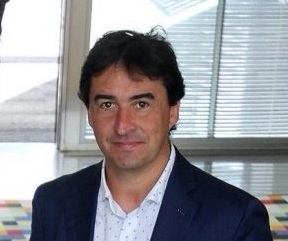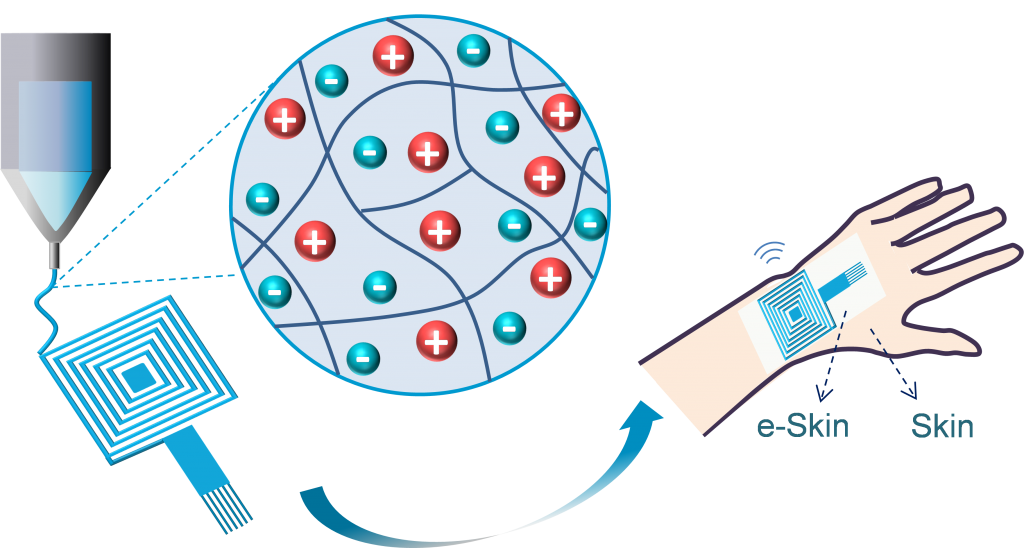Special Lecture by Prof. David Mecerreyes : “3D Printable Conducting Polymers for Bioelectronics”

Prof. David Mecerreyes will give a talk on “3D Printable Conducting Polymers for Bioelectronics”
Speaker : Prof. David Meserreyes (Ikerbasque Research Professor at POLYMAT ‐ University of the Basque Country (UPV/EHU), Donostia-San Sebastian, Spain)
All are welcomed to join. Please register here (contact form) if you wish to attend the lecture.
Short Description:
Ionic and electronic conducting polymers are searched in the area of bioelectronics for the development of innovative medical devices. The design of artificial scaffolds and devices which interact with the human body relies on the ability to control the mechanical and electrical signals, together with the material composition, topography and biocompatibility. New medical devices such as bioresponsive electrodes, biosensors, electronic skin and neural or muscle regeneration show the need of new conductive materials that can be printed. In this presentation we will show the recent activities carried out within the IONBIKE RISE project (www.ionbike-rise.eu) towards the development of printable conducting polymers. The presentation will include different materials and additive manufacturing methods based on the use of light or temperature such as:
- 3D printing of supramolecular iongels by Fused Deposition Modelling
- 3D printing of conducting PEDOT hydrogels by Stereolithography
- 3D printing of biodegradable and conducting PEDOT/PLA polymers
References
[1] M. Criado-Gonzalez, A. Dominguez-Alfaro, N. Lopez-Larrea, N. Alegret, D. Mecerreyes. “Additive Manufacturing of Conducting Polymers: Recent Advances, Challenges and Opportunities” ACS Appl. Polym. Mater. 2021, 3, 6, 2865-2883
Figures

Speaker Bio:
PhD in polymer chemistry by the University of Liege (Belgium) in 1998. Then he carried out a post-doctoral stay at IBM Almaden Research Center and Stanford University in California. Back to Spain he worked for 10 years in CIDETEC. In 2011 he became Ikerbasque Research Professor at POLYMAT (www.polymat.eu), University of the Basque Country. Since then he coordinates the Innovative Polymers Group and acts as scientific vice-director of POLYMAT. His actual research interests include the synthesis of innovative polymers for energy and bioelectronics. In particular his team is dedicated to polymer chemistry of innovative redox polymers, poly(ionic liquid)s, iongels and conducting polymers. He is co-author of more than 350 scientific articles. Co-founder of the start-up company POLYKEY.
